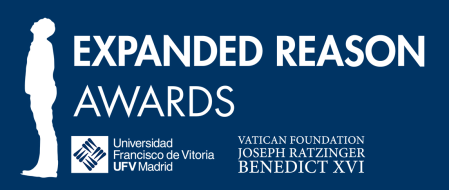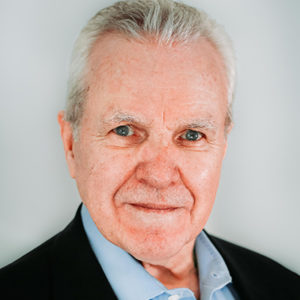Tagged: “process model”
The Handbook of Forgiveness Covers All the Bases
A recently-published compilation of forgiveness research being called “the authoritative resource on the field of forgiveness” includes an appraisal of Dr. Robert Enright’s Process Model of Forgiveness—the four-phase procedure now being used and recommended worldwide as “the pathway to forgiveness.”
The Handbook of Forgiveness, Second Edition, consolidates research from a wide range of disciplines and offers an in-depth review of the science of forgiveness. The 394-page book includes 28 pages of references to forgiveness research evaluations and a 16-page index listing virtually every imaginable topic on the subject. It is edited by well-known forgiveness researchers Everett L. Worthington, Jr. (Virginia Commonwealth University), and Nathaniel G. Wade (Iowa State University).
Chapter 25 of the 32-chapter anthology is entitled “A Review of the Empirical Research Using Enright’s Process Model of Interpersonal Forgiveness.” It is authored by Dr. Suzanne Freedman (University of Northern Iowa) and Dr. Enright who have a long history of collaborative forgiveness exploration. The review chapter describes the Process Model, provides a summary of the empirical (verifiable) findings, and details the latest application of the model: forgiveness education with children and adolescents.
The Process Model of Forgiveness was first outlined by Dr. Enright and the Human Development Study Group in 1991. It was first empirically tested in 1993 by Dr. Enright and fellow-researcher Msgr. John Hebl. Through randomized experimental and control group clinical trials, the Process Model has shown to improve emotional well-being in multiple settings across diverse cultures around the globe.
“For information ranging from the biological roots to the psychological fruits of forgiveness,this is, hands down, the single-stop, go-to source.”
David Myers, Hope College (Holland, Michigan)
Co-author, Psychology (12th Edition) and Social Psychology (13th Edition)
The Handbook of Forgiveness also includes a chapter written by John Klatt (University of Wisconsin-Madison) and two researchers from the Federal University of Paraíba (in the city of João Pessoa, Paraíba, Brazil)–Eloá Losano de Abreu and Julio Rique. That chapter is an 11-page review of forgiveness philosophies, concepts and practices in South America and Latin America. Dr. Enright has co-authored numerous multi-national forgiveness research projects with both Klatt and Rique.
For additional information:
- Learn about the Enright Process Model of Forgiveness
- Preview The Handbook of Forgiveness including the Table of Contents and abstracts of all 32 chapters
- Read editorial reviews of The Handbook of Forgiveness
- Read more about Dr. Freedman and her forgiveness research
How do you know that you can skip a step in your Process Model of forgiveness without it affecting the success of that process?
We tend to rely on common sense in this situation. For example, in the Uncovering Phase, one unit in the process is to see if you have been comparing yourself with the offending person, with the false conclusion that you are less of a person than the other. If you do not make such comparisons, then you can skip that step. There are parts of the forgiveness process that seem essential to us such as:
- seeing the other person as more than the hurtful actions against you;
- being aware of a softened heart within you as you progress in forgiveness;
- bear the pain of what happened so that you do not pass that pain back to the offending person or to others.
For additional information, see The Four Phases of Forgiveness.
Dr. Robert Enright and Dr. Richard Fitzgibbons Receive 2019 International Research Award
Two members of the International Forgiveness Institute (IFI) Board of Directors have been selected to receive an international award recognizing their Forgiveness Therapy research. Dr. Robert Enright, founder of the IFI, and Dr. Richard Fitzgibbons, MD, Director of the Institute for Marital Healing just outside Philadelphia, PA, have been named the 2019 recipients of the Expanded Reason Award.

The prestigious award is presented annually by the University Francisco de Vitoria (Madrid, Spain) in collaboration with the Vatican Foundation Joseph Ratzinger/Benedict XVI (Rome, Italy) “to recognize and encourage innovation in scientific research and academic programs.”
Recipients (only two researchers are selected worldwide each year) are determined by an international panel of seven judges who examine books and journal articles to ascertain who across the globe is conducting innovative and exceptional research that cuts across the social sciences. The award criteria includes the challenge of establishing a dialogue of particular sciences with philosophy and theology in line with the thought of Pope Benedict XVI who led the Catholic Church from 2005 – 2013.

Dr. Richard Fitzgibbons
Drs. Enright and Fitzgibbons co-authored the book Forgiveness Therapy: An Empirical Guide for Resolving Anger and Restoring Hope. The book, published by the American Psychological Association (APA) in 2015, signifies that Forgiveness Therapy is now rightfully taking its place alongside such historically accepted therapies as Psychoanalysis, Humanistic Psychotherapy, and Cognitive Behavioral Therapy.
Forgiveness Therapy is actually a new and updated version of a previous book by Drs. Enright and Fitzgibbons, Helping Clients Forgive, that was published in 2000, also by the APA. The new 358-page volume helps clinicians learn how to recognize when forgiveness is an appropriate client goal and provides concrete methods for working forgiveness into therapy with individuals, couples and families. It is grounded in theology, philosophy, psychiatry, education and the social scientific method.
Dr. Fitzgibbons is a long-time research associate of Dr. Enright’s. Trained in psychiatry, he has worked with hundreds of couples over the past 40 years. His book, Habits for a Healthy ![]() Marriage: A Handbook for Catholic Couples, is available at Amazon.com.
Marriage: A Handbook for Catholic Couples, is available at Amazon.com.

Dr. Robert Enright
Dr. Enright, in addition to founding the IFI 25 years ago, has been a professor with the University of Wisconsin-Madison School of Education’s highly-regarded Department of Educational Psychology since 1978. He is the author or editor of seven books and more than 150 publications on social development and the psychology of forgiveness. He pioneered forgiveness therapy and developed an early intervention to promote forgiveness–the 20-step “Process Model of Forgiving.”
Both Dr. Fitzgibbons and Dr. Enright have been invited to attend and formally accept their awards at the Expanded Reason Awards Ceremony on Sept. 19, 2019 at the University Francisco de Vitoria in Madrid.
The Expanded Reason Awards recognize extraordinary teachers and researchers.
The Awards Ceremony is part of the 3-day International Expanded Reason Congress in Madrid that brings together university researchers and teachers from all over the world. The Congress seeks to deepen the dialogue among science, philosophy, and theology through presentations, roundtable discussions, and workshops. Dr. Fitzgibbons and Dr. Enright will be outlining the concepts behind their winning project in a talk that will also be published in the official proceedings of the Congress.♥
Does the process of forgiving myself differ at all from the process of forgiving someone else?
You can follow the same Process Model when forgiving yourself. Most of the time, when we offend ourselves, we also have offended others. If this is the case for you, then as you forgive yourself, consider seeking forgiveness from those whom you have hurt by your actions.
For additional information, see How to Forgive.



